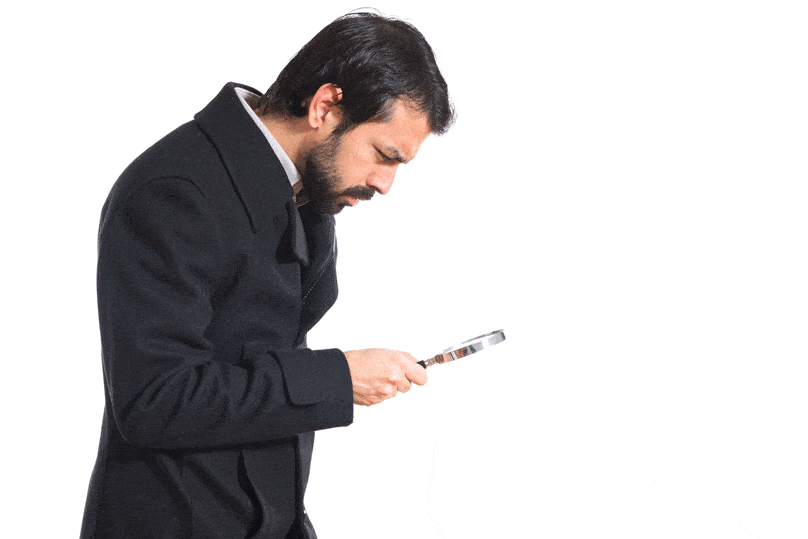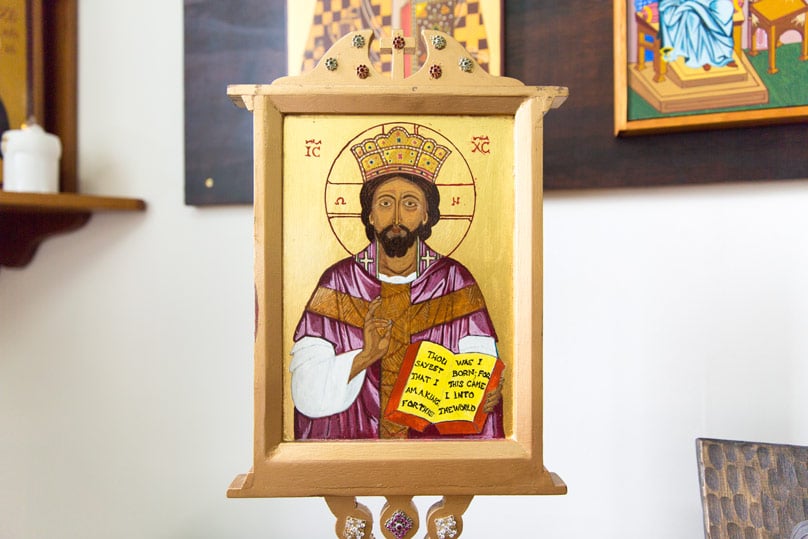
When actor Jerry Orbach died, I couldn’t help feeling a twinge of glee. To be clear, this has nothing to do with Orbach himself, and everything to do with me being a giant, insecure weirdo. Perhaps you’d like to hear more.
What happened was, toward the end of a long and respectable career, Orbach played a TV police detective. In one episode, his character walked into the apartment of a dead woman whose body was still sprawled face down on the floor. He and his partner were checking the place out for murder clues, and the Orbach character mutters out of the side of his mouth, “Not much of a housekeeper, was she?” WHEN SHE WAS DEAD ON THE FLOOR!
And from that day forward, I judged my house according to how snotty Jerry Orbach would be while stepping over my cooling corpse. I didn’t keep it any cleaner, mind you. I just got more defensive about it.
This trivial scene stuck it my mind because I was so incensed that a detective, of all people, would go looking for the wrong kind of evidence. Surely the tidiness of her countertops was less relevant, at that particular moment, than the untidy state of her skull, what with the pool of blood and all. Grrr, Jerry Orbach!
Um, the reason I’m bringing this up is because it reminds me of this zinger of a question you’re supposed to ask yourself: “If it were illegal to be Catholic, would there be enough evidence to convict you?” It’s not a bad question, and we could rephrase it as, “If you were dead, would a good detective be able to tell you were Catholic?”
Modern Catholics sometimes preen ourselves on our stealthy infiltration of the secular world, by which we are constantly evangelising our unchurched friends, when in fact all we’re doing is sitting around drinking beer and making butt jokes, which religious and secular people do in perhaps slightly different ways, but there is a lot of overlap. In other words, maybe your stealth evangelisation is so subtle, there isn’t actually any.

So, while it is true that you’re likely to scare people away if you go around bristling with Catholicism like a dog bristles with the quills of a porcupine who won, it’s also true that, if you’re Catholic, people ought to know you’re Catholic. They ought to be able to learn something about Catholicism by spending time with you. Or at least there ought to be some evidence that you’re Catholic, so they might think, “Oh, hey, So-and-so is Catholic. I’ll ask him about [whatever religious question comes up].”
There ought to be some evidence of your faith where you live and spend time. You don’t have to go full-on domestic shrine, with statues lurking in every corner, palm branches stuffed behind every picture frame, and a prie-dieu taking up prime real estate in the living room. But a crucifix here and there? Yes. A Bible where anyone who wants it can find it? Yes. An icon or two? Who doesn’t like icons? Classless savages, that’s who. Catholics have the advantage of having dominated fine art for thousands of years, so it’s easy to incorporate religious objects into your decor, no matter what your taste.
External signs of our faith are important. They signal to other people that we are not ashamed of our faith, and they let people know that we are the ones who can be approached with questions about spiritual matters. Just as importantly, they remind us of our faith. They remind us who we are, what we believe, where we are going, and what company we are in. But this kind of evidence of faith is not the most important kind – or at least it won’t be when it’s your own cooling corpse in question. When you die, the Lord is not going to step over your body, tally up how many knick knacks you own, and mutter, “Not much of a Catholic, was she?” He will be looking at more relevant evidence.
He’ll be looking for evidence which no one can buy in a religious goods catalogue: Quietly saying grace before meals in public, for instance, or making the sign of the cross when passing a church or seeing an ambulance. When someone asks about your baby’s name, explaining that it’s after saint So-and-so. When someone confides they’re going through a rough time, offer a promise of prayer, along with whatever other help you can give. Don’t just say, “I have an errand, and then I’ll meet you;” specify that you’re hitting confession, and then you’ll be free.
And there are other, more difficult kinds of evidence you should be building. You should be known as the one who refuses to gossip. You should be known as the one who won’t go to a strip club or look at porn. You should be the one who won’t use God’s name in vain. You should be known as the married person who stays faithful, or the single person who stays chaste. You should be the one who springs to mind when someone is in trouble or need, because you will always help or try to find someone who can help.
You should be used to being the butt of some jokes because everyone knows you’re Catholic, and Catholics are different. You should be known as the one who doesn’t lie, doesn’t cheat, doesn’t defame, doesn’t despair. You should be the one who will never be cruel. You should be the one who knows something better about life than what we see on TV.
And you should be the one who will apologise, humbly and sincerely, when you inevitably fail in some or all of these standards. This behaviour is the real evidence for your faith, and it will not be overlooked when the Lord comes again.
Make no mistake, your time as a corpse will come. Take a look at your life as it stands now. All the evidence you’ve left – what does it say about you?
